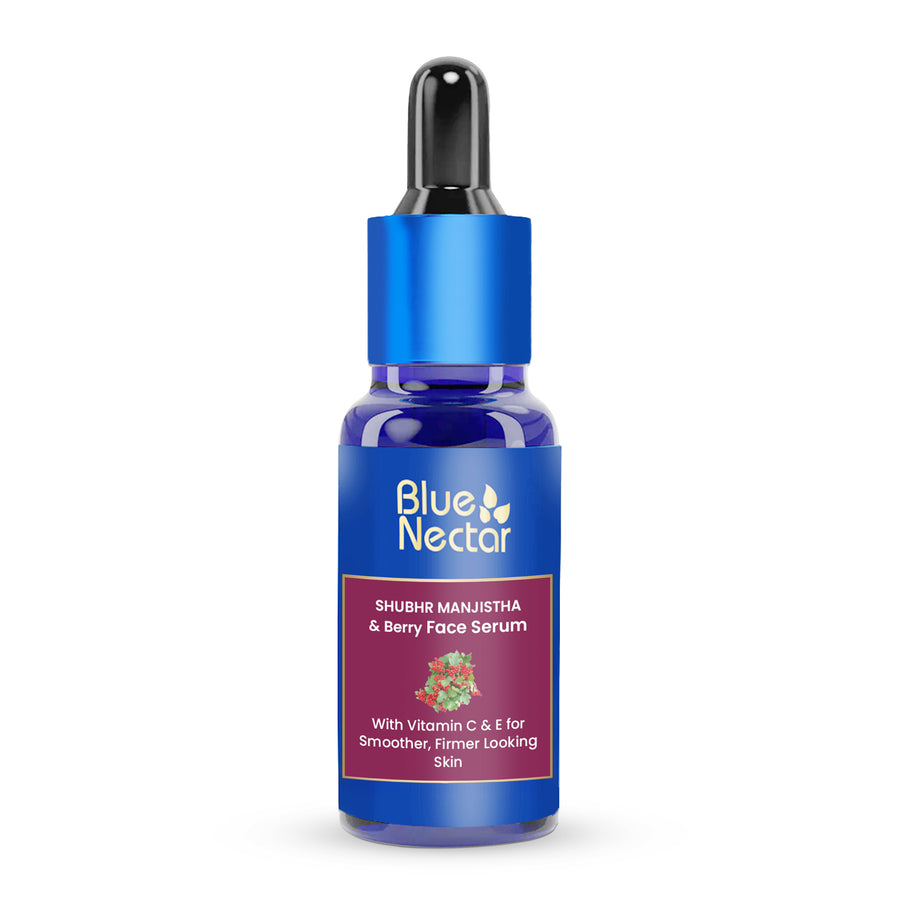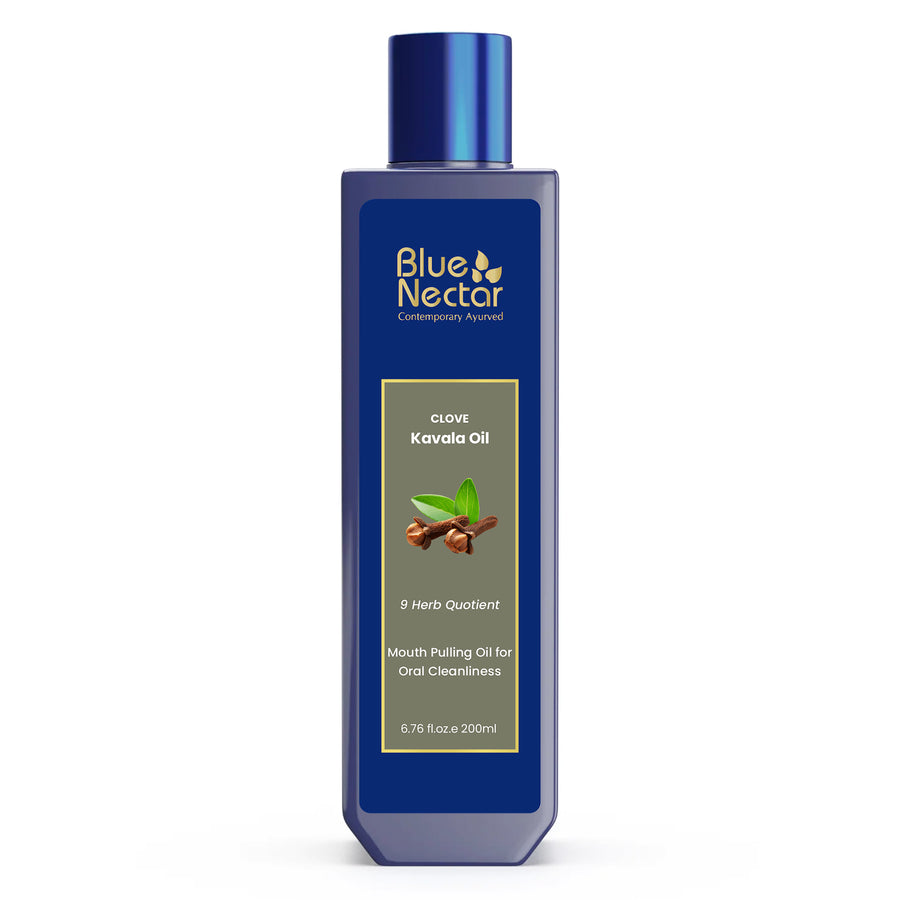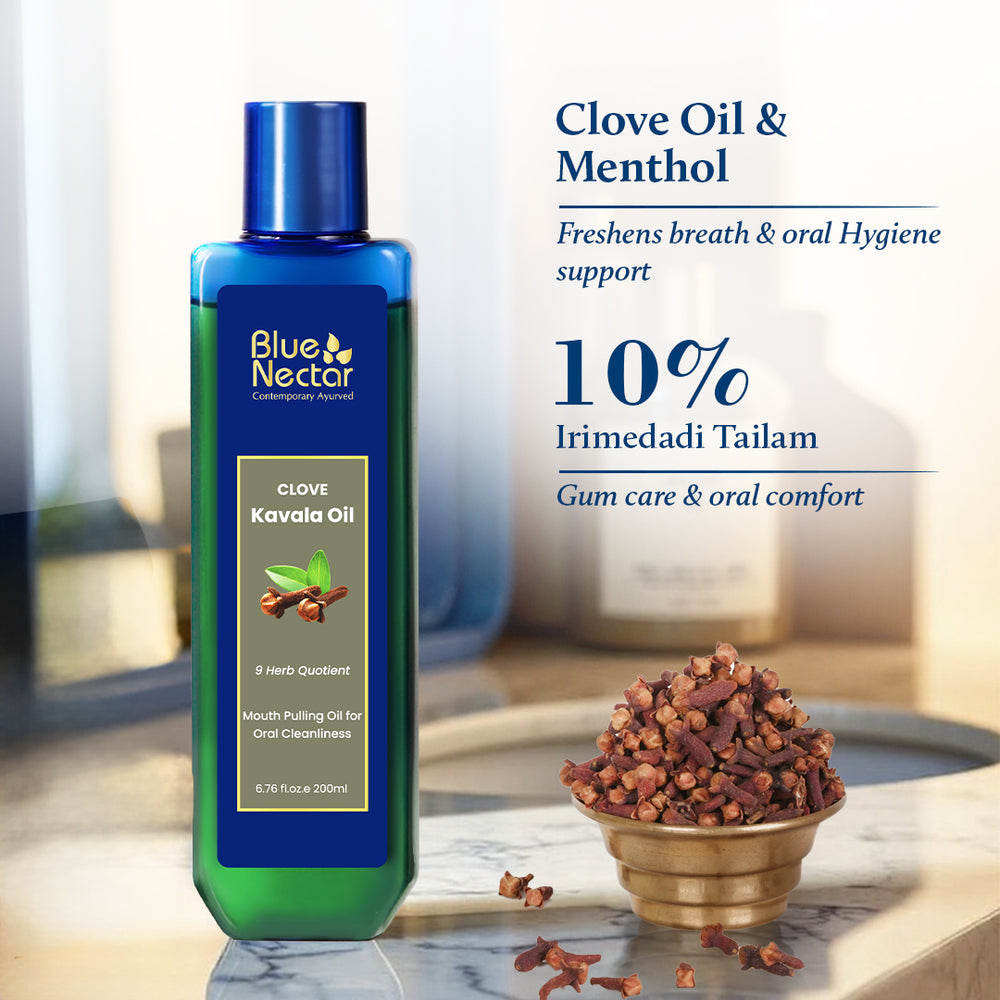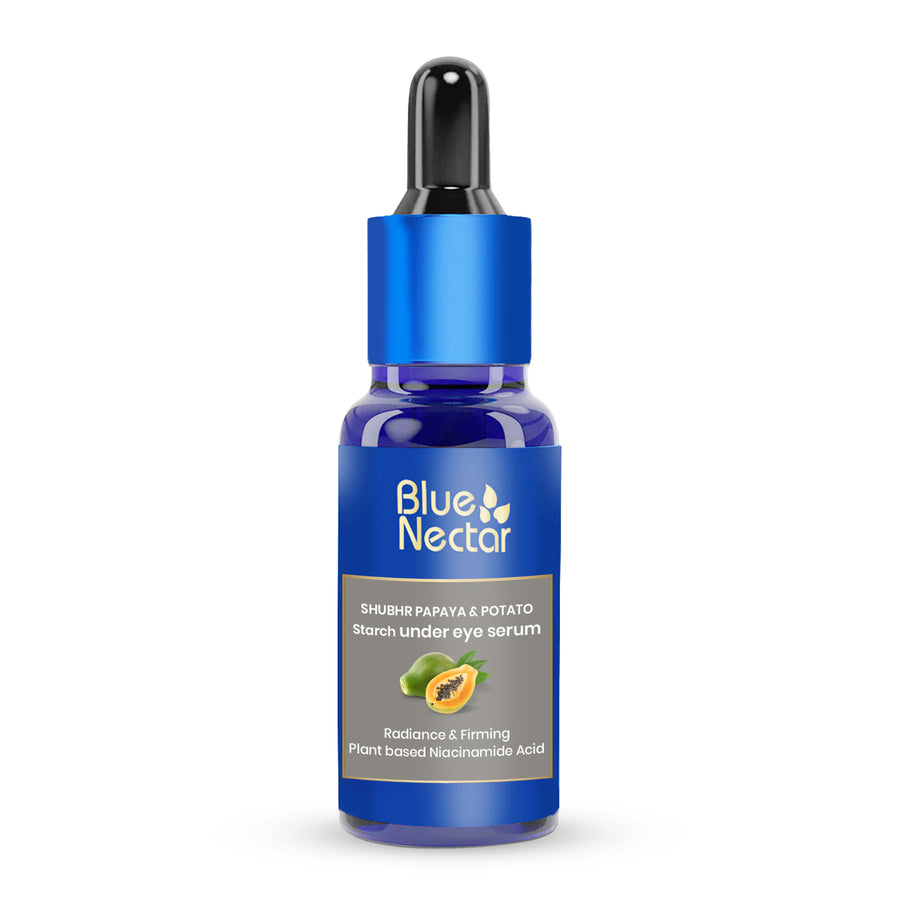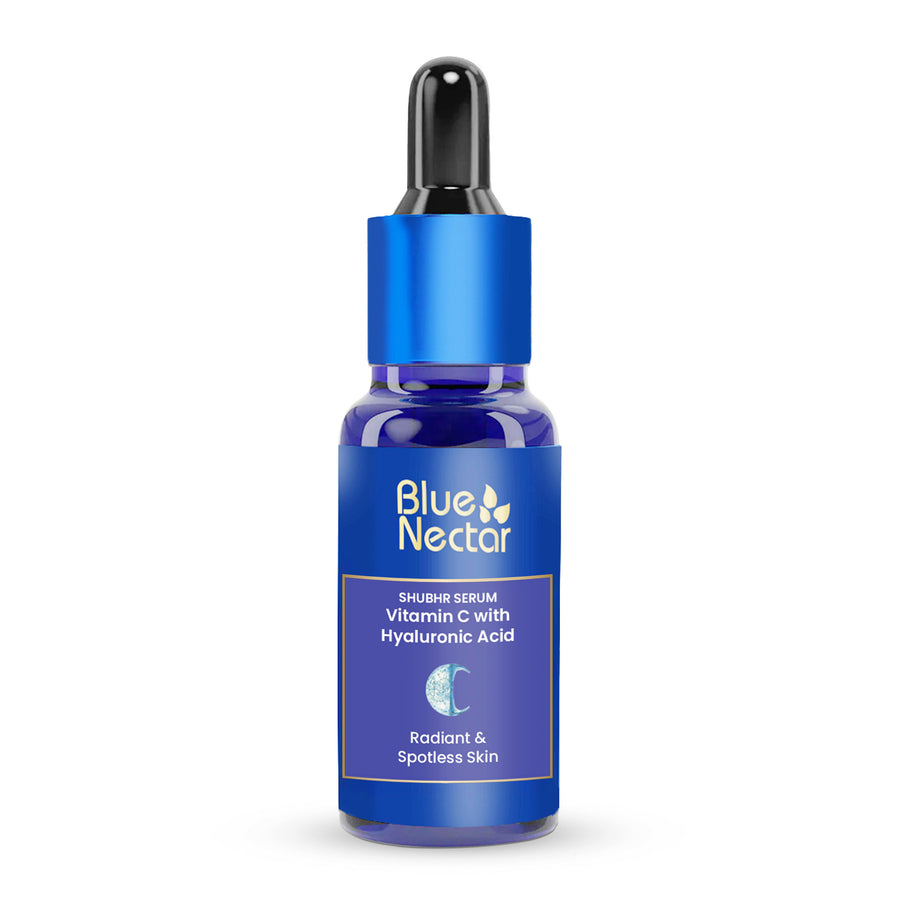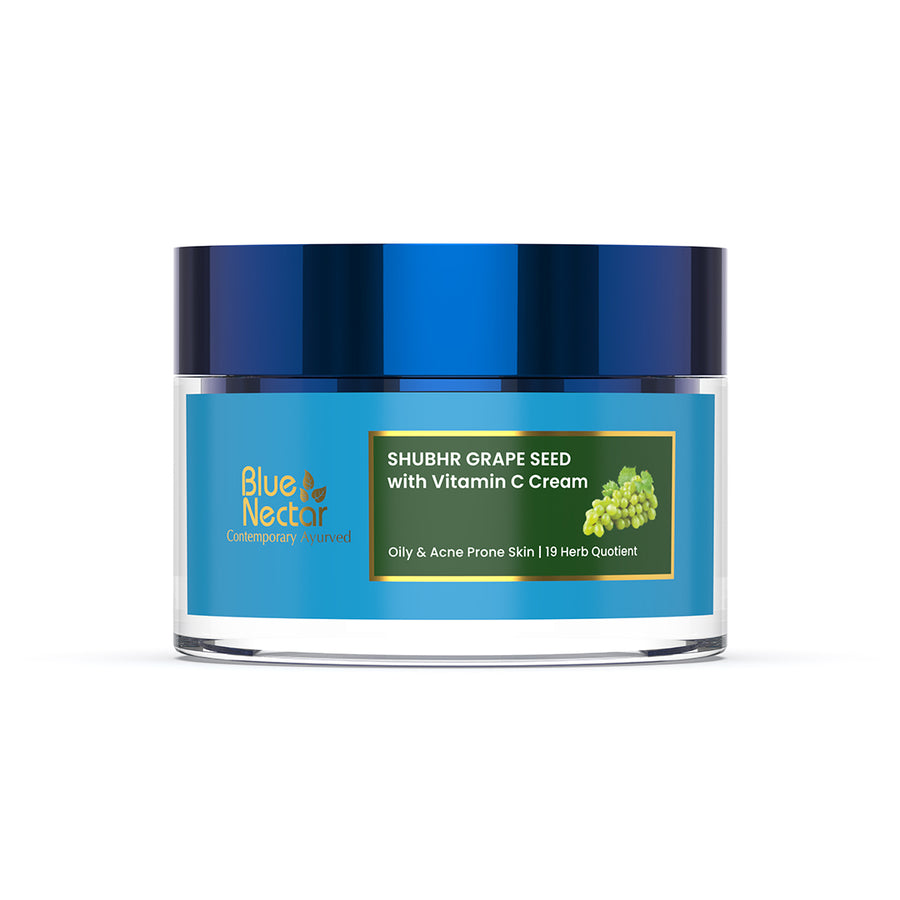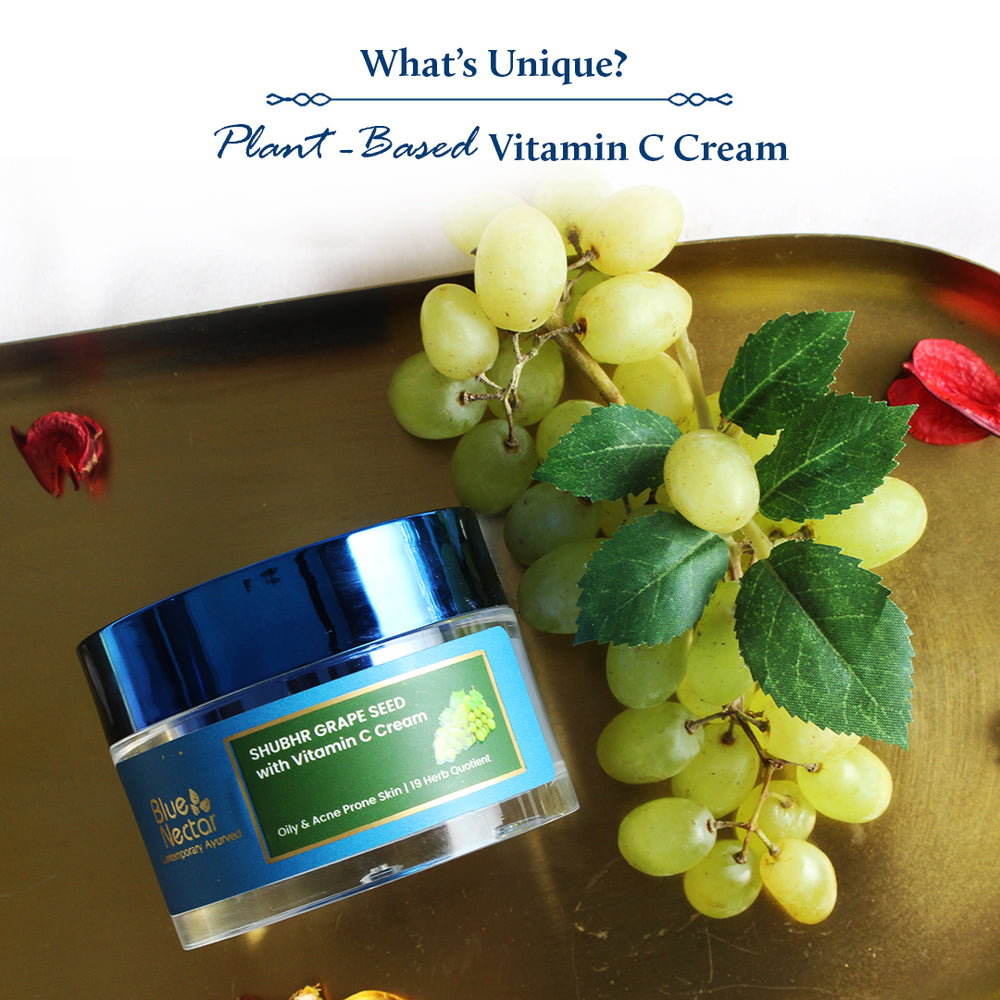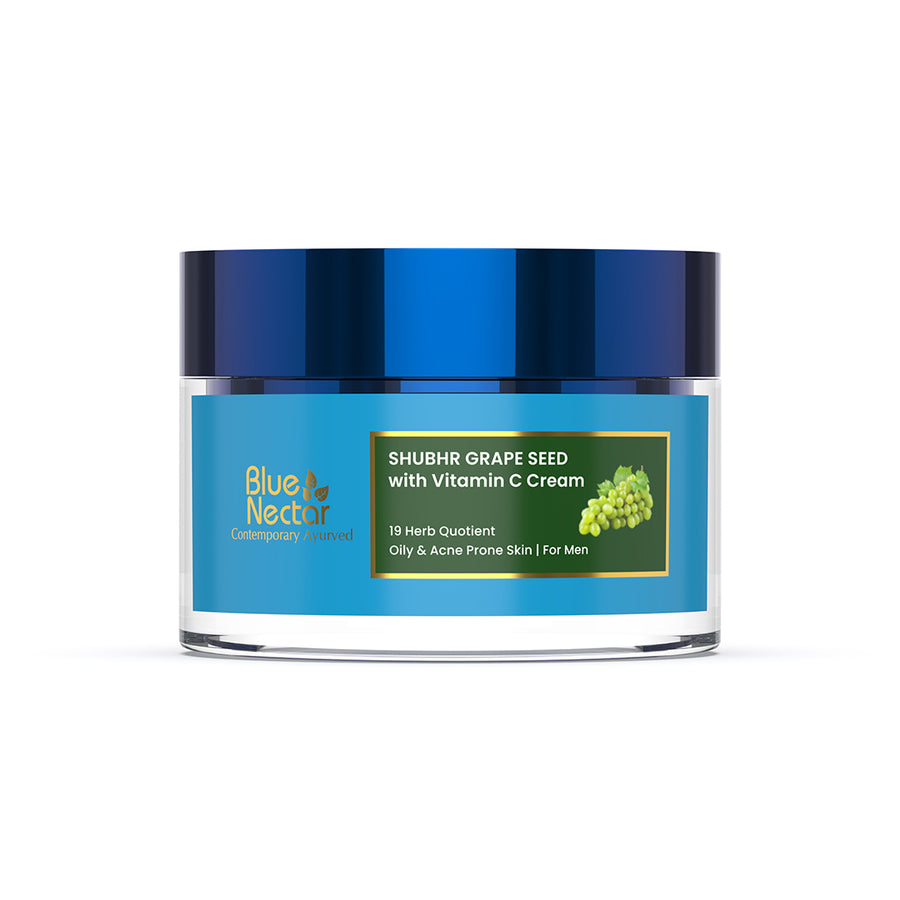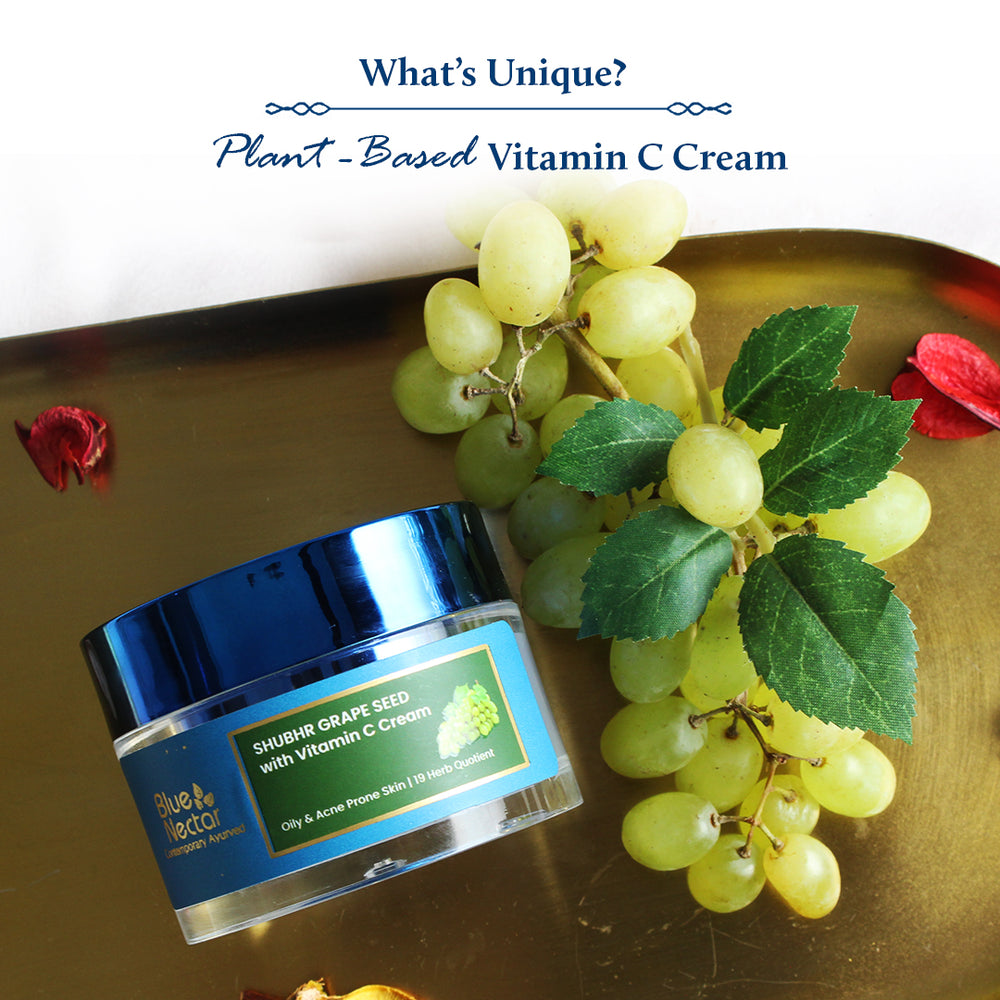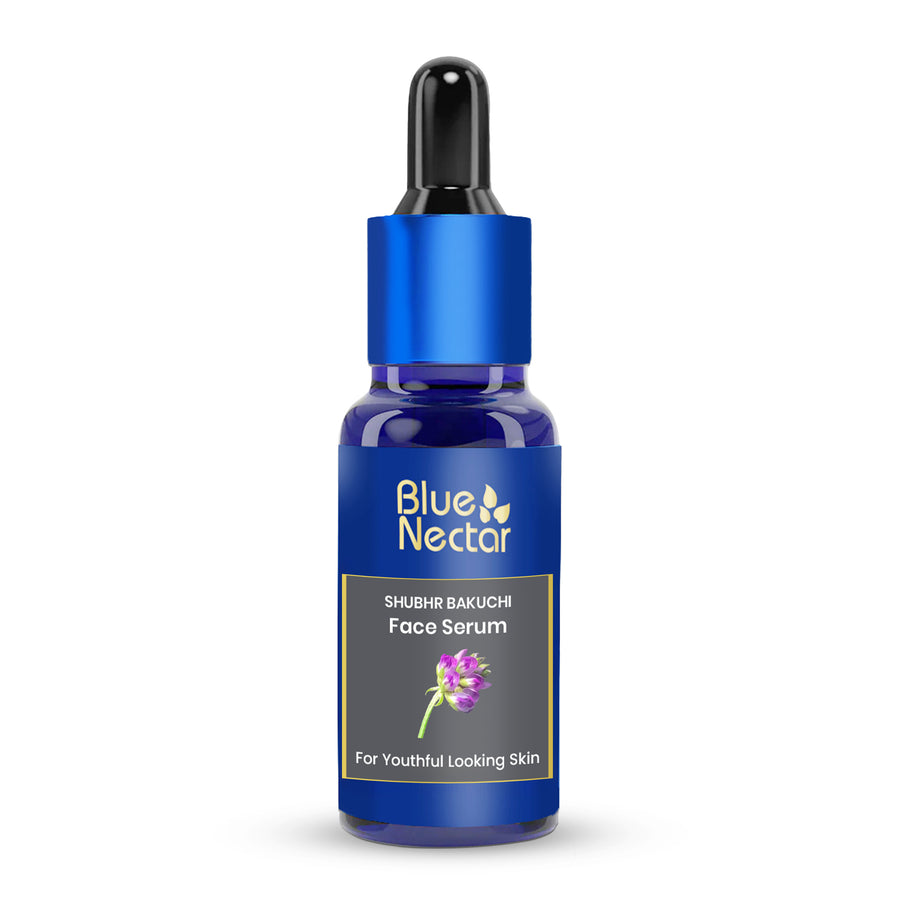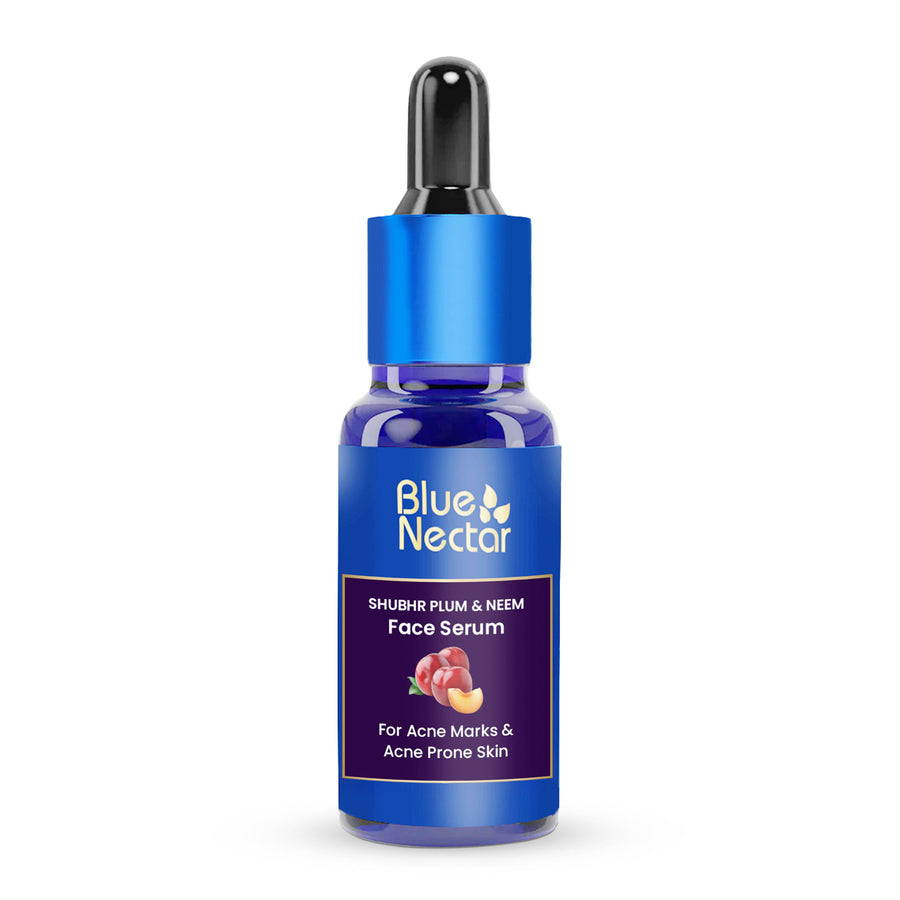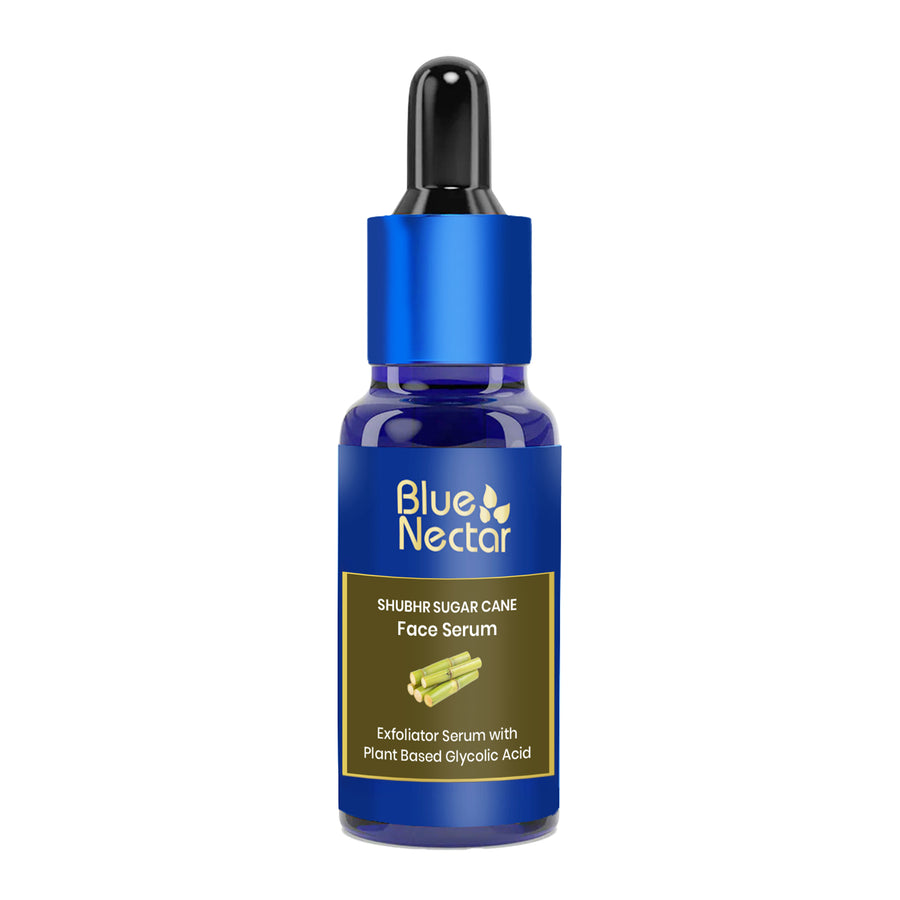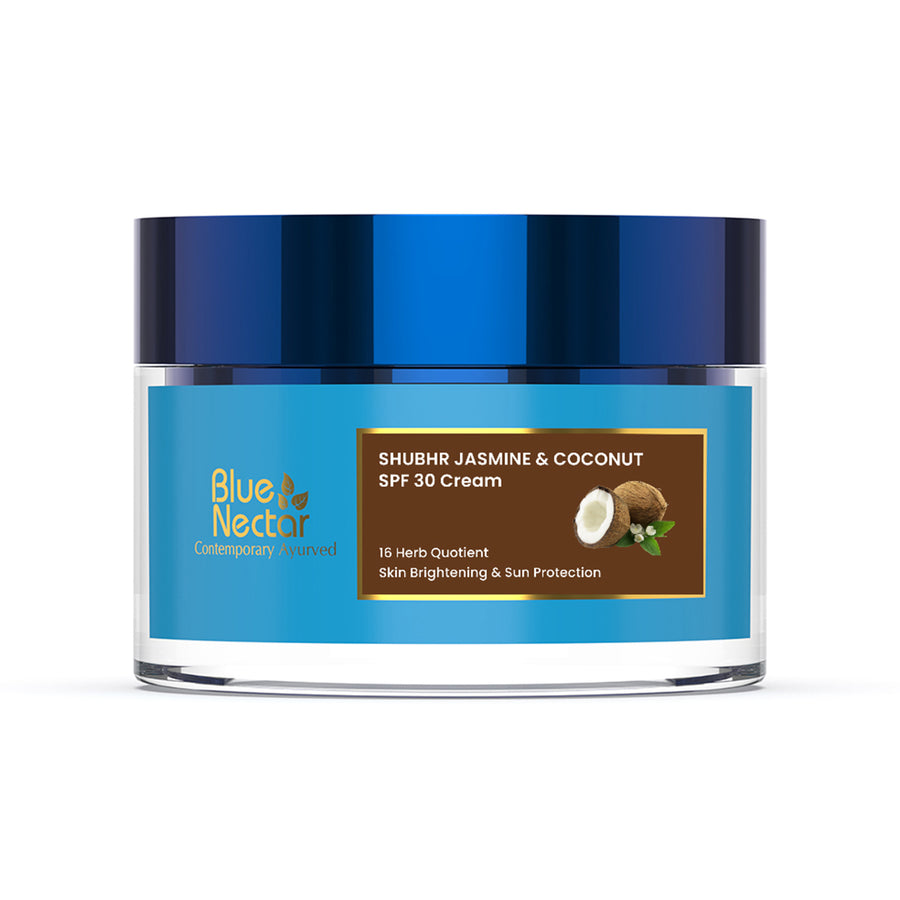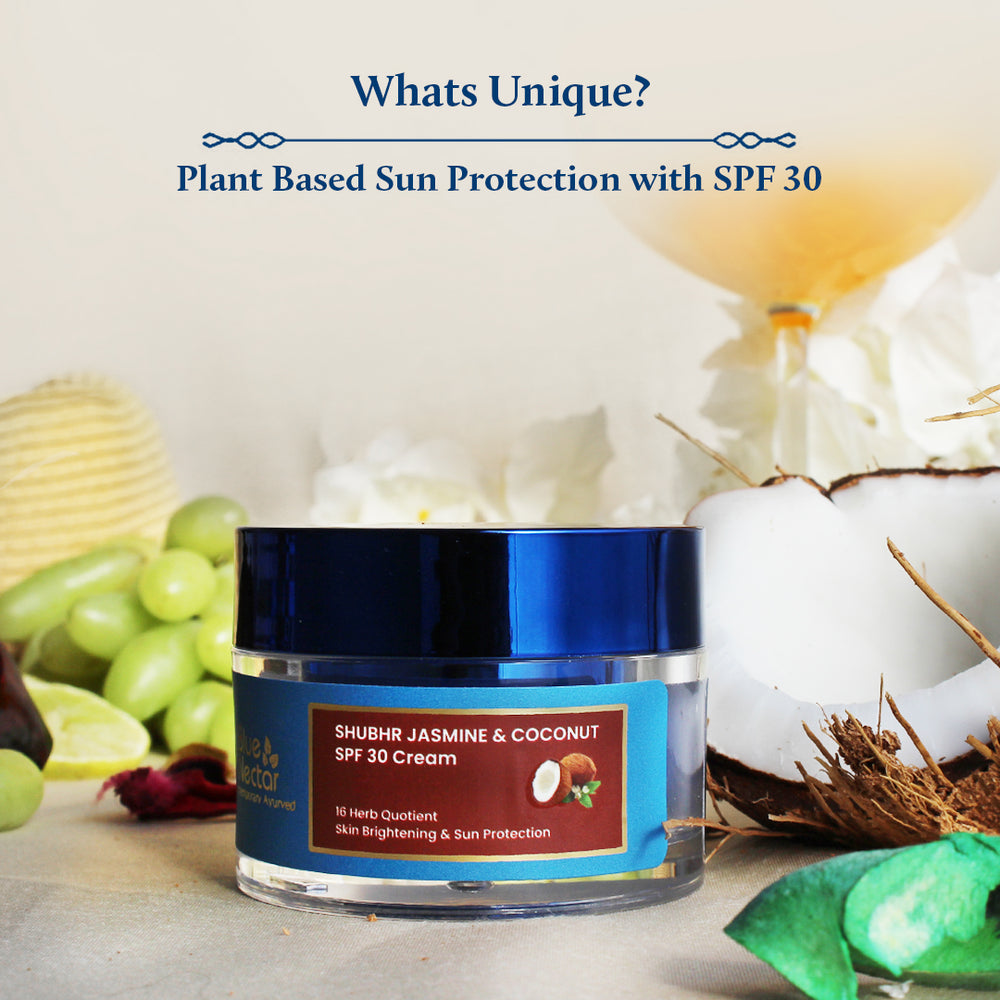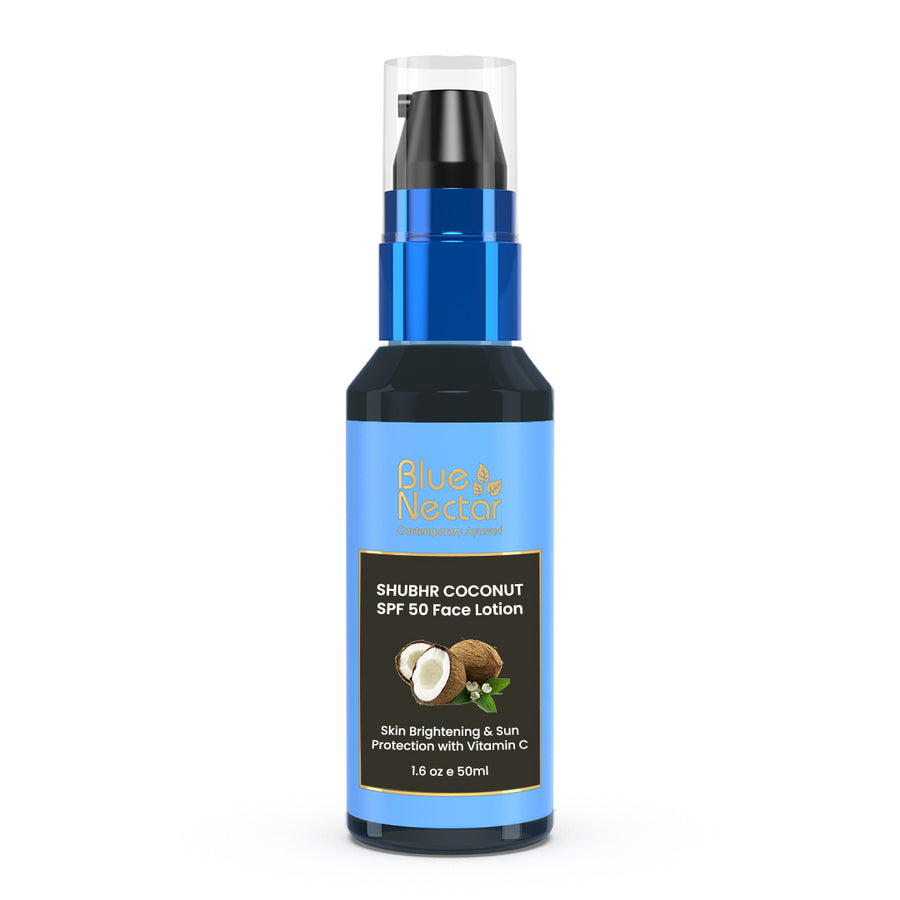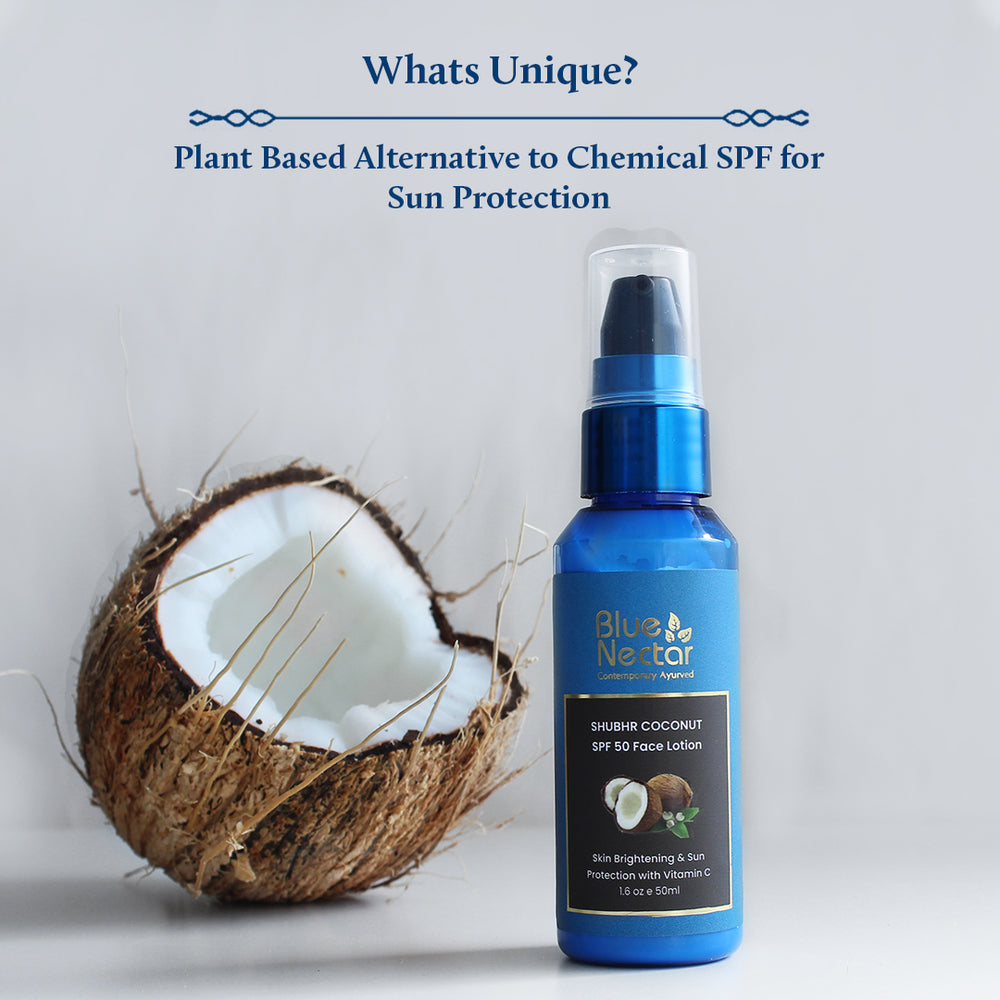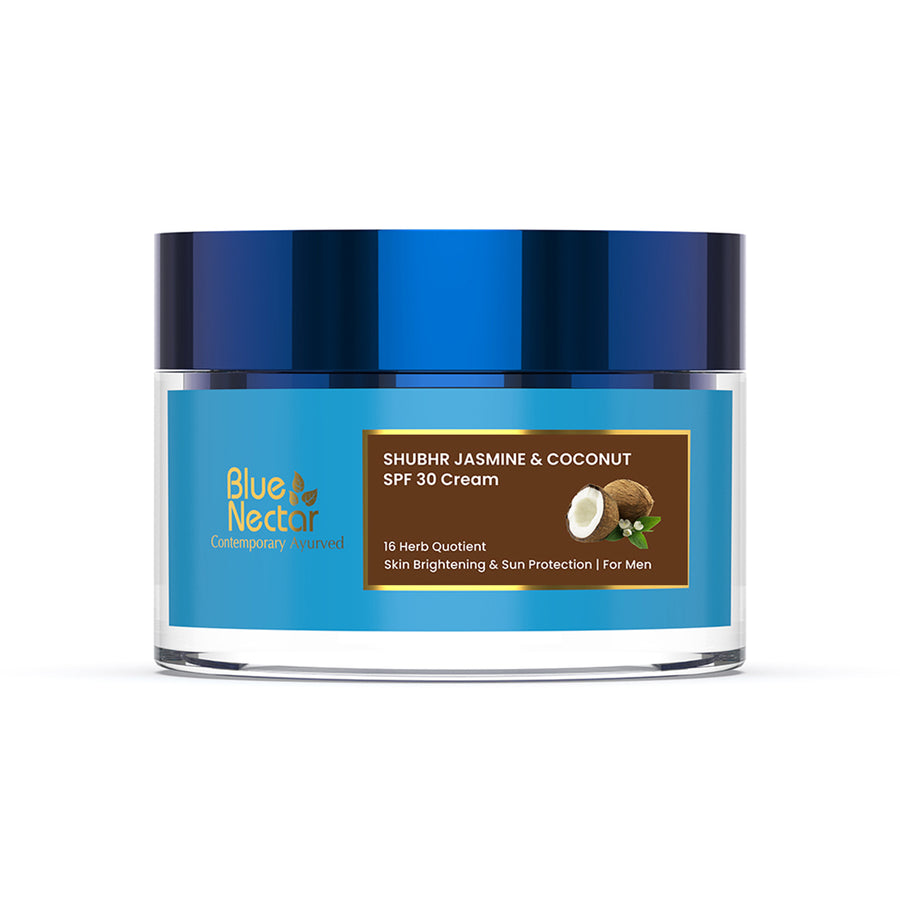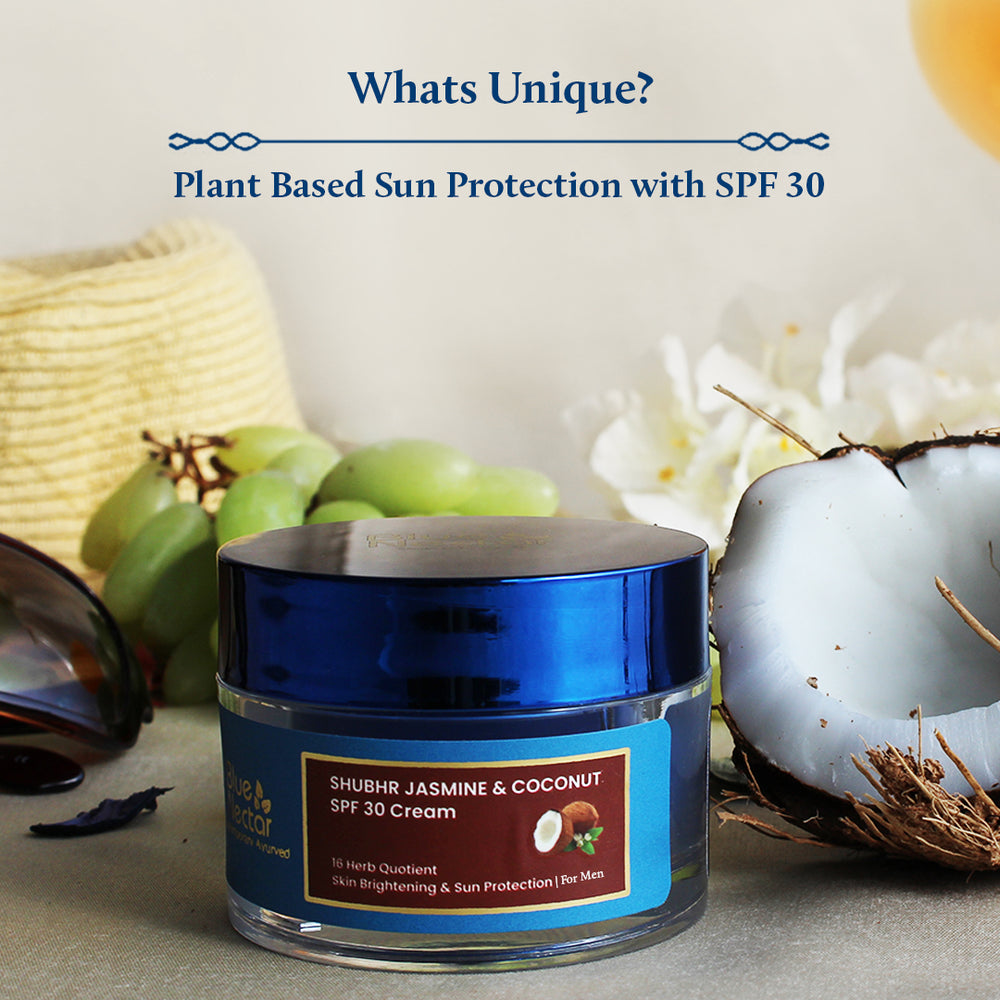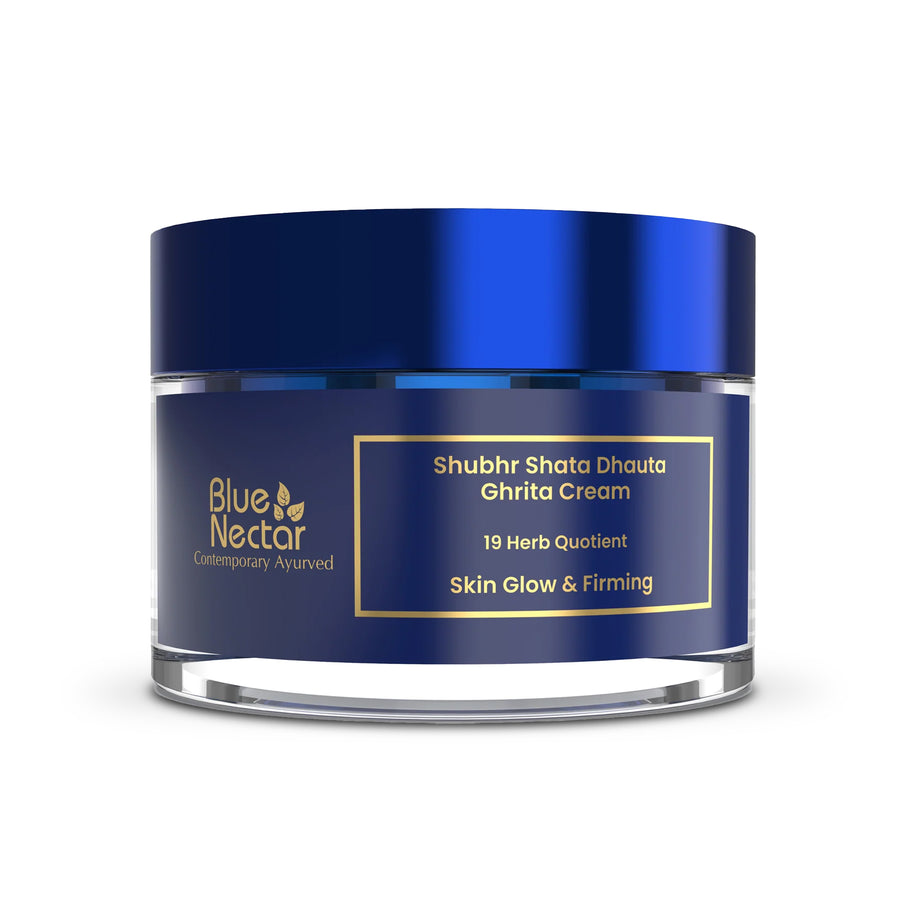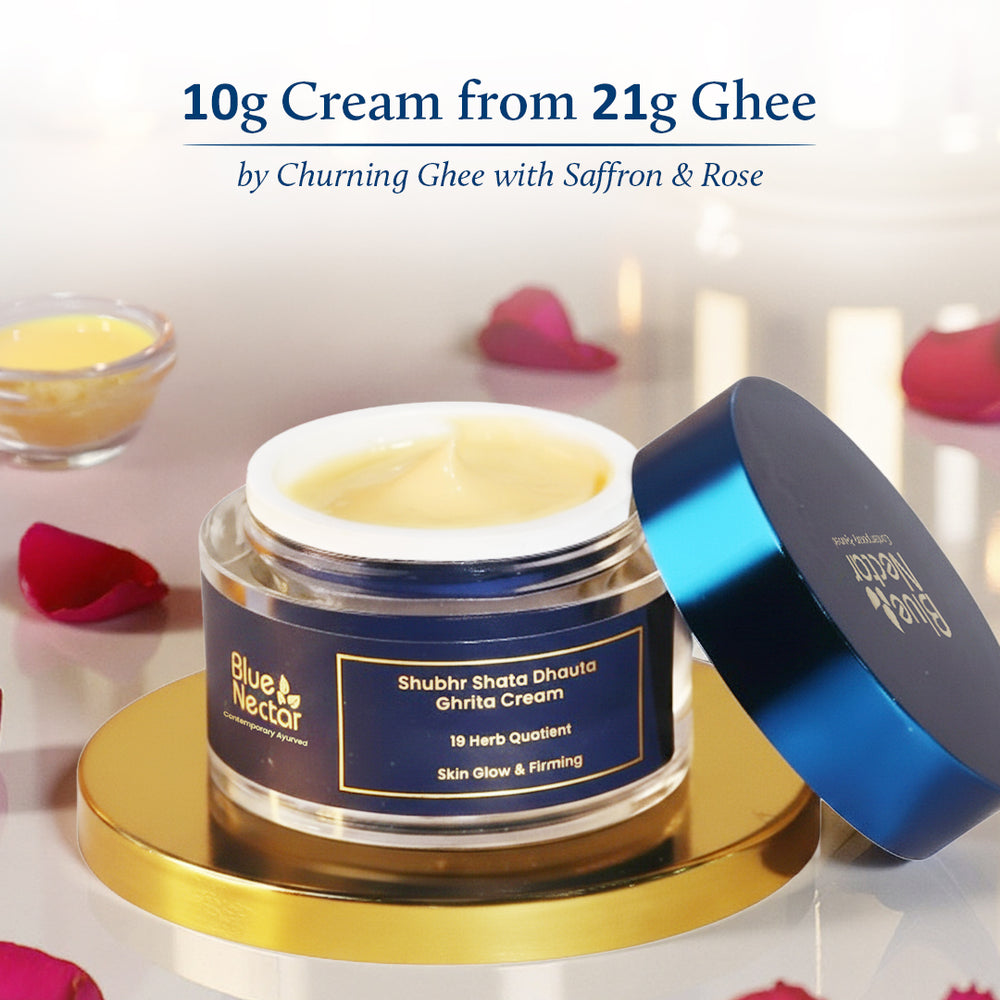FAQ
1. How will Ayurveda change the story of my skin?
Ayurveda has a holistic approach. It provides you with individualized solutions based on your skin type and Dosha. It uses natural ingredients to balance the skin, feel or texture of the skin, or solve some other issues and concerns such as acne or dryness. This does not apply to chemicals that damage your skin in the long run.
2. What are some of the most common go-to face Ayurvedic ingredients?
Some of the easiest ingredients that are simply available right on your kitchen racks include Turmeric, Neem, Sandalwood, Aloe Vera, and Rose Water. These ingredients can be termed the 'jack of all trades' as they don't have one attribute to impart but like all-rounders they offer a host of benefits, such as anti-inflammatory, antimicrobial, and hydrating properties.
3. How to know which skin type I have?
Your skin can show multiple behaviors that determine its type. An oily skin is a shiny skin that feels greasy and loaded with excess oil. A dry skin feels flaky, rough and lacks hydration. A combination skin has regions that are oily and dry, and lastly, a normal skin is that which can create a balance without showing two extremes of having either dryness or oiliness.
4. Can Ayurveda face care solve acne or blemishes?
Yes, Ayurveda has a cure for every skin issue. It gives homemade remedies for acne and marks. Ayurvedic ingredients are magical elixirs that help balance excess oil, prevent inflammation, and accelerate skin healing without causing any side effects.
5. What ingredients do I look for in a face serum for anti-aging?
Look for ingredients like Amla, Vitamin C & Bakuchi, known for their anti-aging properties.
6. Do you need to apply Moisturizer after a Face Serum?
Yes, Moisturiser, after applying a face serum, locks in the active ingredients of the serum and gives additional hydration.
7. Can I layer a few face serums together?
Yes, you can layer more than one face serum as per the requirements of your skin, but be sure to understand how each product works and apply them in the correct order, typically from the thinnest to the thickest consistency.
8. Why is sunscreen important even on cloudy days?
You won't see this happen but, UV Rays can even pass through clouds. Hence, application of Sunscreen Daily prevents Premature Aging and Skin Cancer.
9. How often should I put on a face mask?
Ideally speaking, this is achievable 1-2 times a week, but this will largely depend on skin and Mask kind.
10. Are Blue Nectar's face care products suitable for sensitive skin?
Oh, absolutely! Blue Nectar keeps it gentle with natural ingredients, so no need to worry about your skin getting cranky.
11. What benefits do Oil-Free Face Serums offer?
Oil-Free Face Serums provide Hydration, improve skin texture, and reduce breakouts without clogging Pores.
12. What should I look for in a Face Product for Acne-Prone Skin?
Look for Non-comedogenic, Oil-Free, and soothing ingredients like Salicylic Acid or Tea Tree Oil.
13. How do I choose the Right Sunscreen for my Face?
Opt for Broad-Spectrum SPF 30 or higher, and ensure it's suitable for your skin type.
14. What are the benefits of using a Face Toner?
Toners help to remove leftover impurities, balance skin pH, and prepare your skin for Moisturizers and Serums.
15. What’s the best way to handle Combination Skin?
Use a gentle Cleanser and a balanced Moisturizer. Treat oily areas with Lightweight, mattifying Products, and dry areas with more hydrating ones.
16. What is the difference between a Day Cream and a Night Cream?
Day Creams are usually lighter and may contain SPF to protect your skin from Sun damage during the day. Night Creams are typically richer and focused on repair and hydration, as your skin is in repair mode while you sleep
17. Can I use a Facial Cleanser as a Makeup Remover?
While some Facial Cleansers are effective at removing Makeup, using a dedicated Makeup Remover before cleansing can be more effective, especially for heavy or waterproof makeup.
18. What’s the difference between SPF 30 & SPF 50?
SPF 50 offers slightly more protection than SPF 30, blocking about 98% of UVB rays compared to 97% with SPF 30.
19. Why should I choose a Sunscreen with SPF 50?
SPF 50 sunscreens offer strong protection from harmful UV rays, helping to prevent sunburn and early signs of aging. Ideal for outdoor activities or when you want extra assurance, this high SPF keeps your skin safe and shielded.
20. What does Niacinamide do for my under-eye area?
Niacinamide is a superstar ingredient for brightening and firming the under-eye area. It targets dark circles, puffiness, and fine lines, all while strengthening the skin’s barrier and boosting texture. The result? A refreshed and youthful look that’ll have your under-eyes glowing.
21. What’s the difference between Physical and Chemical Exfoliators?
Physical exfoliators use gritty particles to scrub away dead skin, while chemical exfoliators use acids or enzymes to break down dead skin cells and smooth out the texture. Both can do wonders, but it's key to pick the one that works for your skin type and sensitivity.
Blue Nectar Face Care | Ayurvedic Skin Care Products
Face care, but make it a vibe! Welcome to Blue Nectar’s Face Care Collection, where Ayurvedic magic meets skincare sass with modern innovations. Think of honey as working for your glow goals, niacinamide putting dark circles in their right place where they are never seen, and kumkumadi oil saying, "Wrinkles, who?" Whether your skin’s throwing tantrums or just needs a little skin care pampering, we’ve got ayurvedic serums, scrubs, ayurvedic face creams, and ayurvedic face washes ready to seize your day. Packed with natural herbs and zero nasty chemicals, it’s like gifting your face a herbal spa every day. So, ready to shine brighter than your highlighter? Let’s glow!
Best Face Care Collection | Blue Nectar
● Niacinamide Under Ayurvedic Eye Serum for Dark Circles
Say goodbye to panda eyes with Blue Nectar's Niacinamide Under Ayurvedic Eye Serum! Packed with 17 Ayurvedic herbs like potato starch and papaya (nature's Vitamin B3 superheroes), this Ayurvedic serum busts dark circles, puffiness, and fine lines. Think of it as a spa day for your under-eyes. No chemicals, all glow!
● Manjistha & Berry Ayurvedic Face Serum for Skin Firming
Level up your skincare game with this juicy Manjistha & Berry Ayurvedic Face Serum. Powered by 13 Ayurvedic herbs and plant-based Vitamin C, this Ayurvedic Face Serum firms, lifts, and smooths wrinkles. Plus, its warm vanilla-citrus aroma makes you feel like a snack. Your skin’s BFF for an antioxidant glow.
● Kumkumadi Ayurvedic Face Serum for healthy radiant Glowing Skin
Glow like never before with Kumkumadi Ayurvedic Face Serum! A magic potion of 26 herbs (yes, including saffron!) clinically proven to brighten, de-age, and boost collagen. This Ayurvedic Face Serum is like the fountain of youth, bottled.
● Women's Grape Seed Ayurvedic Face Cream with Plant Based Vitamin C For Oily & Acne Prone Skin
Oily skin? Meet your match. This 100% Grape Seed Ayurvedic Face Cream tackles acne, fades spots, and keeps your skin oil-free yet hydrated. Plus, this Ayurvedic Face Cream is all about that radiant glow with zero grease. Perfect for queens of all ages!
● Men's Grape Seed Ayurvedic Face Cream For Oily & Acne Prone Skin
Fellas, ditch the shine and level up your skin game. This Grape Seed Ayurvedic Face Cream balances oil, zaps acne, and powers up collagen for that youthful glow. Non-greasy? Check. Radiance? Double check. Get glowing!
● Women's Vitamin C Ayurvedic Face Cream for Skin Brightening & Radiance Boost
Brighten up with this natural Vitamin C ayurvedic face cream, crafted with juicy apples and 13 herbs. This ayurvedic face cream zaps dark spots, hydrates without grease, and smells like paradise. Your skin will thank you for this juicy treat!
● Men's Vitamin C Ayurvedic Face Cream for Skin Brightening
Rugged skin meets smooth solutions with this Vitamin C-rich men’s Ayurvedic face cream. Apple juice, aloe, and Mulethi team up to fight dark spots and add that flawless finish. Hydrated, matte skin is just a dab away.
● Shubhr Neem Face Cleanser | Acne Control & Oil Balancing
Say bye-bye to zits and oily drama with Neem Face Wash. With 11 herbal warriors like neem and honey, it tackles acne, blackheads, and even dark spots. The ultimate glow-getter for all genders!
● Kumkumadi Face Wash for Gentle Cleansing
Gentle but oh-so-effective! This Kumkumadi Ayurvedic Face Wash brightens, hydrates, and balances your skin with its herbal magic. Say hello to glowing, moisturized skin minus the nasties with this Ayurvedic face wash
● Honey Detan Face Wash for Glowing Skin
Get your glow on with this Honey-packed gem! Infused with 15% real honey and 8 Ayurvedic herbs, this sulphate-free ayurvedic face wash is a skin-loving powerhouse. It zaps impurities, deep cleanses pores, and locks in hydration without stripping your skin. With a lush, mild aroma, it’s perfect for all skin types and leaves you feeling fresh, smooth, and totally calm. Bye-bye dullness, hello radiance!
● Almond Ubtan Powder Face Pack for Anti-Aging and Firming
This 3-in-1 Ubtan Pack cleanses, scrubs, and firms. Almonds, flax seeds, and Multani Mitti team up to tackle tan, redness, and aging. Sun-kissed skin? Not anymore. Just smooth, even-toned brilliance.
● Coconut Sunscreen SPF 50 Face Lotion for Sun Protection">
Beat the sun with this lightweight, SPF-packed Coconut Sunscreen. No white cast, just pure protection with hydrating coconut water and green tea. Wear it daily, and let your skin soak up the safe vibes.
Ideal Face Care Routine
Here’s a killer face care routine to get your glow on with Blue Nectar’s Ayurvedic Skin care Products:
● Cleanse: Start with a gentle ayurvedic face wash (try on Honey Detan or Kumkumadi) to throw away impurities and leave your skin refreshed.
● Tone: Follow with a toner if you need a little extra balance.
● Serum: Pick an ayurvedic serum that suits your skin goals- whether it's brightening (Vitamin C) or firming (Manjistha & Berry).
● Moisturize: Lock in hydration with an ayurvedic face cream like the Grape Seed face cream for oily skin or Kumkumadi for a luxurious glow.
● Sunscreen: Protect and perfect with an SPF- Coconut Sunscreen SPF 50 is your best friend.
Ready to rock that radiant skin?
Related Searches: Kumkumadi Tailam for Skin Whitening, Kojic Acid Serum Benefits, Ayurvedic Face Serums, Kumkumadi 24K Gold Face Serum, Kojic Acid Serum, Glycolic Acid Exfoliator Serum, Kumkumadi Face Oil , Blue Nectar Face Care Products, Dark Spots on Face Removal Cream, Face Moisturizer for Dry Skin, Oil Free Face Moisturizer, Pigmentation Cream for Face, Tan Removal Cream, Anti Aging Cream for Men, Best Fairness Cream for Men, Best Skin Whitening Cream for Men, Best Night Cream for Men, Face Glow Cream, Rose Face Mist,Turmeric Face Serum, Ubtan
Related Articles: Get Korean Glass Skin with Plant Based Skincare Products, Ice Therapy on Your Face, When was the 1st Time Face Serum was Used?, Are you using Chemicals on your face?, 10 Ayurvedic Herbs to make your skin look Younger, Importance of Face Tonics, How to remove Tanning on Face
Combo Products: Kumkumadi Night Repair Face Cream & Papaya & Potato Starch Under Eye Serum Combo, Saffron Anti ageing Face Cream & Bakuchi Oil Free Face Serum Combo, Morning Skincare Combo, Night Skincare Combo, Kumkumadi Tailam Face Serum and Kumkumadi Face Scrub for Brightening, Kumkumadi Tailam Face Serum and Honey Face wash for Brightening & Glowing Skin,Vitamin C Face Serum + Anti Aging Saffron Cream Combo,Ayurvedic Kumkumadi Serum and Rose Face Water & Face Tonic
Top Categories: Face Creams , Face Wash & Cleanser, Face Scrub & Mask, Face Tonic Mists, Lip Balm & Tints, Body Massage Oils, Body Lotion & Moisturizers, Body Mists, Body Scrub & Wash, Gift Sets


